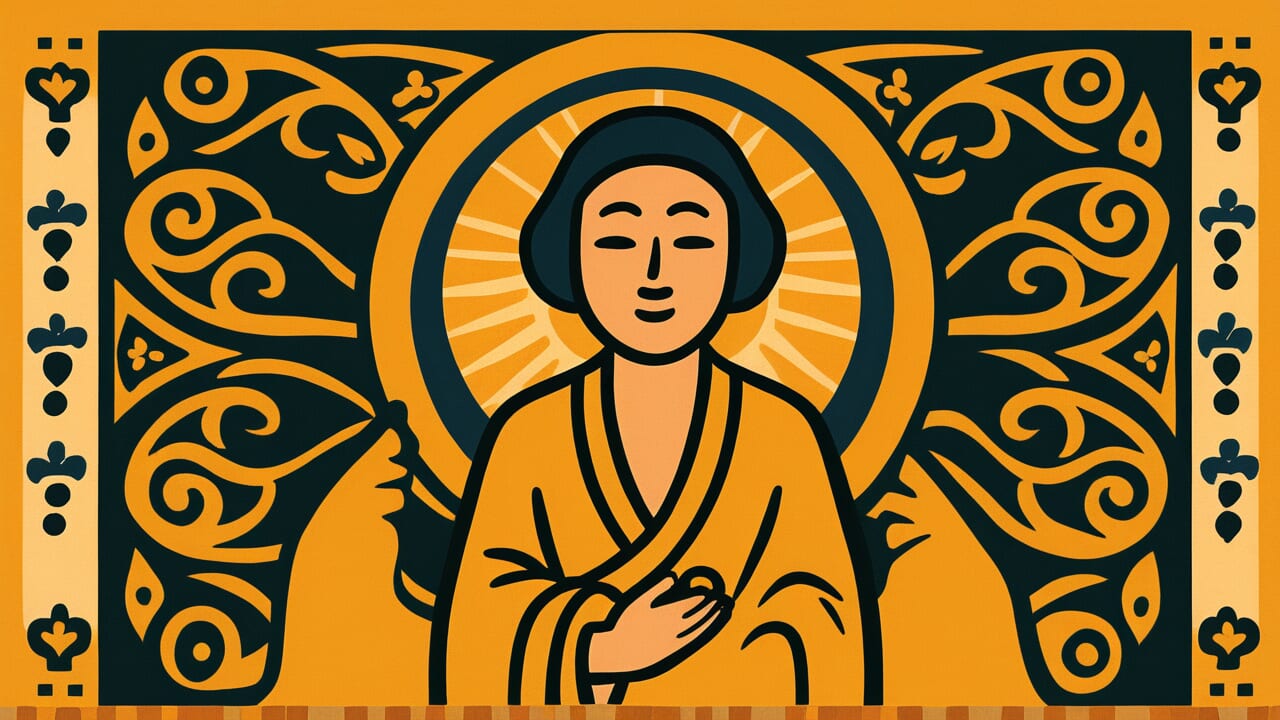How to Read “Naked inside, brocade outside”
Uchi hadaka demo soto nishiki
Meaning of “Naked inside, brocade outside”
“Naked inside, brocade outside” means being poor and lacking substance on the inside while making only the outside look impressive. This proverb critically describes the behavior of people who keep up appearances.
This saying refers to people who lack real ability or wealth but try to appear rich and impressive in front of others.
It applies when someone wears luxury items despite struggling financially, pretends to know things they don’t, or tries to appear bigger than they really are.
Even today, this proverb fits situations like creating a glamorous life on social media while actually living in poverty. It also describes companies with struggling finances that maintain fancy offices.
The proverb contains a warning that fixing only your outward appearance means nothing if the inside doesn’t match.
It teaches us that enriching our substance matters more than maintaining superficial appearances.
Origin and Etymology
No clear written records show the exact origin of this proverb. However, we can make interesting observations from how the words are structured.
The contrasting expressions “naked inside” and “brocade outside” form the core of this proverb.
Nakedness represents the poorest state of having nothing to wear. Brocade means beautiful and expensive woven fabric.
This extreme contrast vividly illustrates the gap between inner reality and outer appearance.
This expression likely emerged from merchant culture during the Edo period.
In urban areas at that time, merchants who gained economic power within the class system focused heavily on maintaining appearances.
Keeping up appearances through clothing and accessories directly affected social credibility and reputation.
The choice of the word “brocade” is also significant.
Rather than just “nice clothes,” using brocade—the highest quality fabric—expresses the extreme degree of keeping up appearances.
The dramatic contrast of being as poor as naked inside while decorated with the finest brocade outside strengthens the proverb’s impact.
People likely passed down such expressions among common folk as wisdom that visually communicates the universal human psychology of vanity.
Usage Examples
- He drives a luxury car but apparently can’t even pay rent—truly “Naked inside, brocade outside”
- Throwing a lavish party to keep up appearances while drowning in debt is exactly what “Naked inside, brocade outside” means
Universal Wisdom
The proverb “Naked inside, brocade outside” has been passed down for so long because it sees through a fundamental human desire.
Everyone cares about how others see them. We want recognition, respect, and to avoid being looked down upon.
This need for approval is an essential emotion that never disappears as long as humans remain social creatures.
Yet people also know the limits of their own abilities and resources.
When facing the gap between ideals and reality, people can choose two paths. One is steadily building real ability. The other is making at least the outside approach the ideal.
When choosing the latter, people fall into the state of “Naked inside, brocade outside.”
This proverb carries a critical tone because our ancestors learned truth through experience.
Fixing only appearances eventually exposes inner poverty. What you lose then isn’t just the temporary reputation gained through vanity.
You also lose more important things like credibility and trust.
Humans are weak creatures. That’s why we want to keep up appearances.
But we also possess the wisdom to know its dangers. This proverb serves as a mirror reflecting this dual nature of humanity.
When AI Hears This
Information theory measures the quality of transmitted information by “signal-to-noise ratio.” This means the proportion of truly valuable information (signal) to meaningless information (noise).
What makes this proverb interesting is that it points out a structural problem in information transmission. The appearance information channel has extremely high signal strength, while essential information about substance barely reaches observers.
The human brain processes about 10 million bits of visual information per second. But it obtains only a few hundred bits of information for inferring inner qualities.
For example, seeing someone in an expensive suit makes the brain instantly label them as “successful.” But knowing their actual financial state or character requires long conversations.
This difference in information acquisition cost creates the rational judgment bias of emphasizing appearance.
Even more interesting is the effectiveness of strategies that exploit this asymmetry.
Marketing research shows many cases where spending 10,000 yen on package design increases sales more than spending 10,000 yen improving actual product value.
This is an optimized strategy that exploits the receiver’s cognitive processing limits.
This proverb essentially understood that if information senders grasp receivers’ cognitive limitations, they can achieve high effects at low cost. It saw through the essence of information strategy.
Lessons for Today
What this proverb teaches you today is the question of what true richness really means.
We now live in an era where we’re more conscious of others’ eyes than ever before.
Open social media and everyone seems to broadcast a brilliant life. Wanting to look impressive yourself in that context is natural.
But stop and think about it. Wouldn’t you ultimately be happier using your energy to enrich your substance rather than fixing your appearance?
Building real ability, deepening knowledge, cherishing relationships—this inner enrichment isn’t for showing others.
It becomes the foundation for your life and nurtures genuine confidence.
And strangely, when your inside becomes fulfilled, good effects naturally appear on the outside too, without forcing it.
When you feel like keeping up appearances, remember this proverb.
Why not use the time and money you were about to spend on appearances for your own growth instead?
That’s the path that truly makes you shine.



Comments